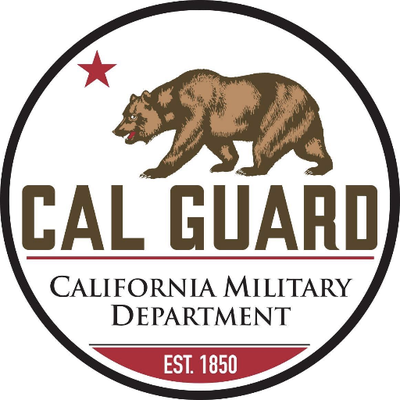
California Military Department. (Photo: calguard.ca.gov)
California’s Military Department
The Adjutant General is the head of the Military Department
By Chris Micheli, February 17, 2025 2:30 am
California has a Military Department in the Military and Veterans Code, Division 1, Chapter 1. Section 50 provides that there is in the State Government the Military Department. Section 51 specifies that the Military Department includes the office of the Adjutant General, the California National Guard, the State Guard, the California Cadet Corps, and the Naval Militia.
Section 52 specifies that the Adjutant General succeeds to, and is vested with, the duties, power, purposes, responsibilities, and jurisdiction of the Division of Military Affairs and of the officers and employees of that division. The Adjutant General is the head of the Military Department and is responsible for its affairs, functions, duties, funds, and property.
Section 52.5 authorizes the Adjutant General to enter into agreements to provide for joint and several liability and indemnity to private agencies and persons for injuries to third parties arising out of a negligent act or omission by a member of the California National Guard while involved in on-the-job training.
Section 53 provides that the creation of the Military Department does not affect the status, position, pay, classification, rights, duties, obligations, responsibilities, or tenure, as the same exist on the effective date of this act, of any person, employee, appointee, officer, enlisted person, warrant officer or commissioned officer employed, enlisted or appointed by or on duty with or in the service of the Office of the Adjutant General or the Adjutant General or the National Guard or the State Guard or the California Cadet Corps or the Naval Militia.
Section 55 specifies the three main requirements to be satisfied for the person serving in the position of inspector general. The inspector general may not serve as the Adjutant General or the Assistant Adjutant General for four years from the date of leaving the position of inspector general. A commissioned officer on state active duty appointed to the position of inspector general who, immediately prior to that duty, held a permanent state active duty position must remain on state active duty upon vacating the inspector general position.
In addition, the inspector general, as soon as able after their appointment, is required to attend the Department of Defense Inspector General School. The inspector general has access to all employees and documents of the department. The inspector general may receive communications from any person, including, but not limited to, any member of the department. The inspector general maintains a toll-free public telephone number and an internet website to receive complaints and allegations. The IG must expeditiously investigate any complaint or allegation regarding specified allegations.
For all written requests submitted by a Member of the Legislature, the inspector general is required to respond in writing with the inspector general’s findings. The response contains only that information that may be lawfully disclosed, and, if a complaint or allegation is at issue, the response must contain, at a minimum, information regarding whether the complaint or allegation was unfounded or sustained.
The inspector general is required to notify a person who submitted a request for investigation of the results of the investigation, with respect to those issues and allegations directly pertaining to, or made by, the person. A request is not a public record and is not subject to disclosure under the California Public Records Act. When deemed appropriate by the inspector general, the inspector general may refer to the Chief of the National Guard Bureau any complaints or allegations.
If the inspector general receives, or becomes aware of, an allegation, complaint, or instance of misconduct regarding an inspector general, the inspector general must immediately refer the allegation, by rapid and confidential means, to the Governor and the next higher echelon inspector general for appropriate action within 10 working days after receipt.
The inspector general is required to submit a report before July 1 of each year to the Governor, the Legislature, the Senate Committee on Military and Veterans Affairs, and the Assembly Committee on Military and Veterans Affairs. The report is required to contain specified information. The IG must also prepare and issue on a quarterly basis a public report that includes all investigations completed in the previous quarter. The following terms are defined in this section: “department,” “inspector general,” “member of the department,” and “office.”
Section 56 is titled the “California Military Whistleblower Protection Act.” A person is prohibited from restricting a member of the department from communicating with a Member of Congress, the Governor, a Member of the Legislature, or any state or federal inspector general, unless it is unlawful, or to threaten or take any unfavorable action against someone who made a communication to specified elected or appointed officials.
If a member of the department submits to an inspector general an allegation that a personnel action prohibited has been taken or has been threatened to be taken against the member of the department, the inspector general is required to take specified actions. After completion of an investigation, the IG is required to submit a report on the results of the investigation to the Adjutant General and a copy of the report on the results of the investigation to the member of the department who made the allegation.
In addition, the following terms are defined in this section: “communication,” “department,” “inspector general,” “member of the department,” and “office.”
Section 56.1 provides that a member of the department who intentionally engages in acts of reprisal, retaliation, threats, coercion, or similar acts against any other member or former member of the department, or employee of any department, board, or authority, for having disclosed what the member or former member of the department or employee in good faith believed to be improper activities in the Military Department must be disciplined by the Governor or the Adjutant General.
Any member of the department who violates the prohibitions specified is subject to disciplinary action or criminal prosecution as authorized by state or federal law. The following terms are defined: “department,” “employee,” “improper activities,” and “member of the department.”
Section 57 requires the Military Department to provide, at a minimum, one training per year to the department’s civil service employees regarding the role and responsibility of the California Military Department Inspector General and their rights under the California Military Whistleblower Protection Act, the federal Military Whistleblower Protection Act, and any other relevant state or federal law.
Section 58 requires, on or before July 1 of each year, the department to report the specified information to the Governor, the Legislature, the Senate Committee on Veterans Affairs, and the Assembly Committee on Veterans Affairs, the Attorney General, and the United States Attorney for each district in California. In addition, the department if required to make this information available on its public internet website in the form of aggregated statistical data. In order to protect victims’ privacy, this information cannot include case synopses.
Section 59 provides that there is in the state government a Governor’s Military Council that serves under the direction of the Military Department and consists of members appointed by the Governor. The council advises the Governor on efforts to retain military installations and operations within this state that are necessary for the defense of the nation, and to coordinate and focus those efforts. The council must include bipartisan representatives from both houses of the Legislature. Senate representatives are nominated by the Senate Committee on Rules and Assembly representatives are nominated by the Speaker of the Assembly. This section is repealed on January 2, 2026.
- Miscellaneous Civil Action Proceedings - February 23, 2026
- Probate Code Could Be a Basis for Statutory Interpretation Principles - February 22, 2026
- Conservation Banks - February 22, 2026




Can the Adjutant General prosecute the Governor for treasonous actions against the State and its citizens???
Especially in regards to actions benefiting a foreign entity (the CCP) and its business entity, BYD, which is a developing manufacturer of electric vehicles and buses, which the Governor is strongly advocating for adoption?
And the Governor appears to be taking actions against the farming and ranching communities of the Central Valley, based upon his mandates and minions squandering precious water resources for specious reasons, to the benefit of CCP entities interested in acquiring valuable farm & ranch land to feed their population…
And said Governor took an unnecessary trip (by California governance standards) to China in 2023 for what purposes???
Asking for a friend…